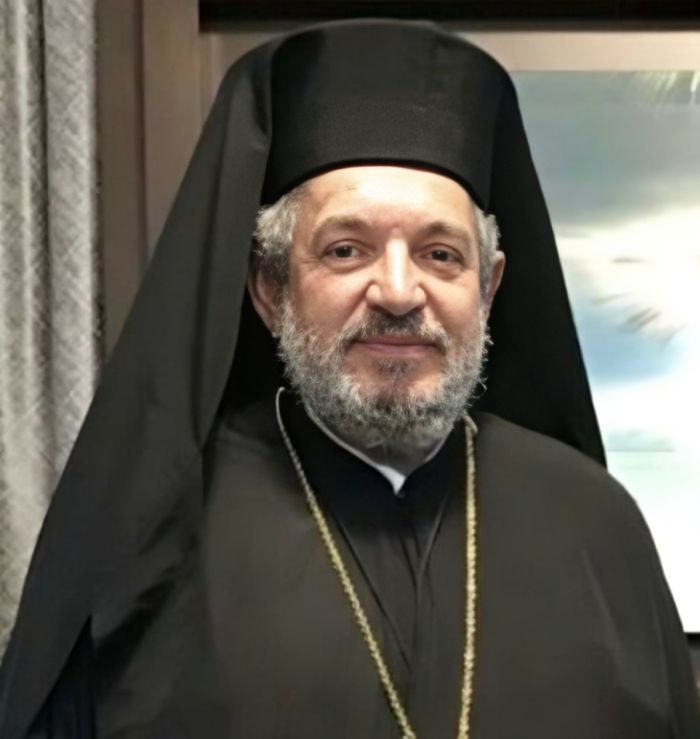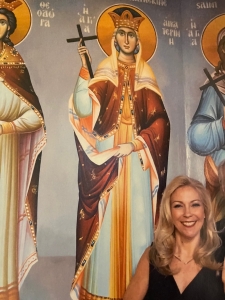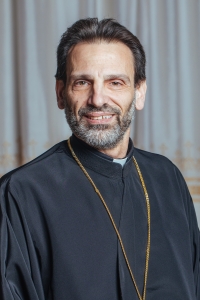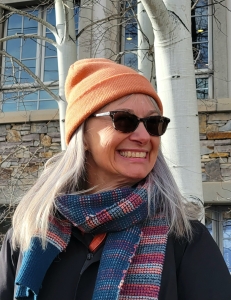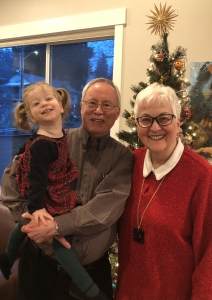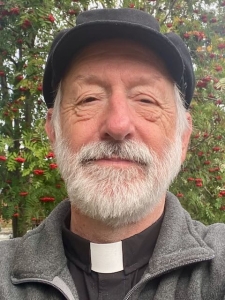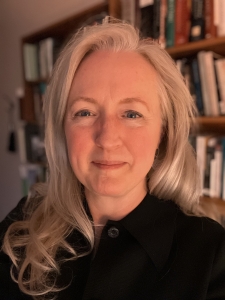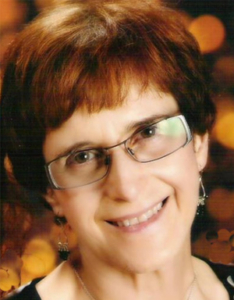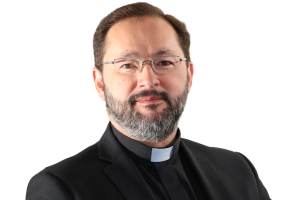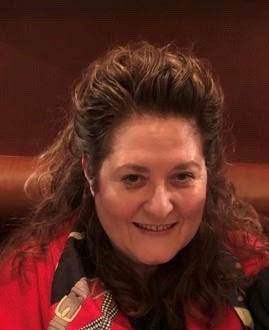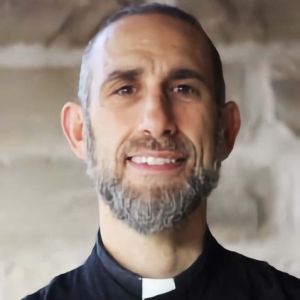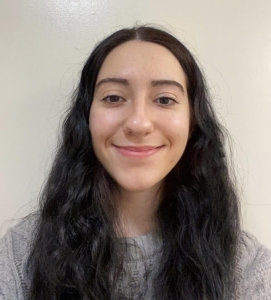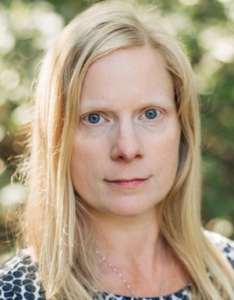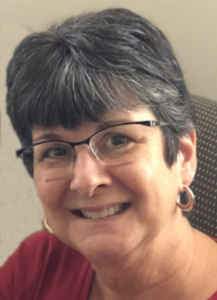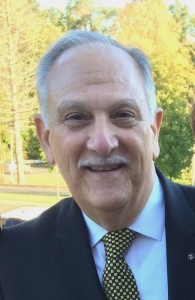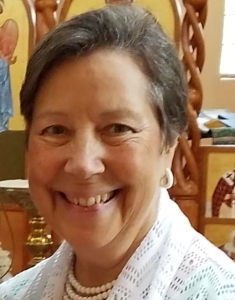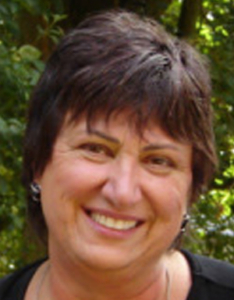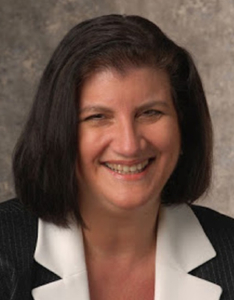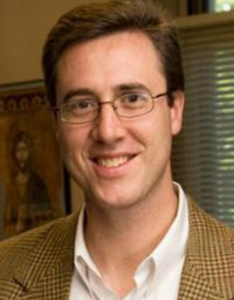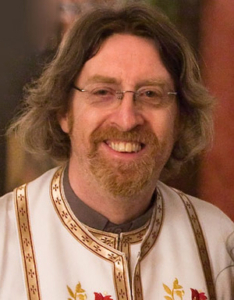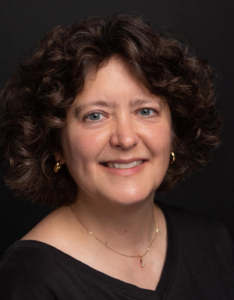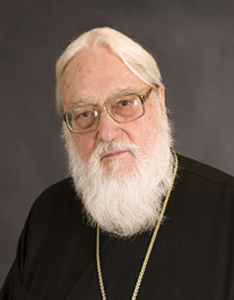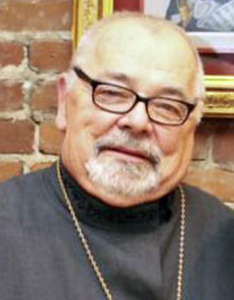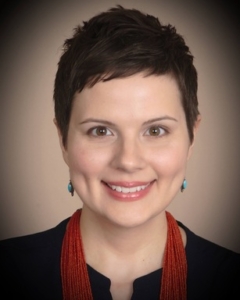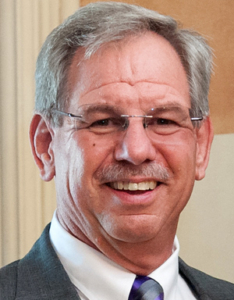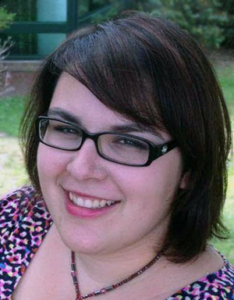Timeline
2013
The initial meeting of Archpriest Very Reverend Fr. Daniel Rentel, AnnMarie Mecera, and Caren Calendine Stayer, Ph.D., took place in Columbus, Ohio, to discuss the feasibility of creating an organization dedicated to exploring the history of the female diaconate, and the possibility of its restoration.
The initial board, prior to incorporation, consisted of Archpriest Very Reverend Fr. Daniel Rentel, AnnMarie Mecera, Caren Calendine Stayer, Ph.D., Teva Regule, Ph.D. (candidate), and Valerie Karras, Ph.D.
2014
A website was officially launched in May of 2014, and a Facebook page was established shortly after. Board members began writing articles on various aspects of the female diaconate for the website.
Board Member Teva Regule, Ph.D. (candidate), made a presentation at the Volos Academy Canon Law Conference titled, “Women and the Canons of the Church: A Difficult Relationship in May of 2014.
The St. Phoebe Center hosted its first conference in December of 2014 in New York City, titled “Women & Diaconal Ministry in the Orthodox Church: Past, Present & Future.” It was the first U.S. conference to be held on women deacons, and drew attendees from across the U.S. as well as the UK.
2015
Papers on “Deaconesses, Ordination of Women, and Orthodox Theology” were delivered by board members Teva Regule, Ph.D. (candidate), and Valerie Karras, Ph.D., at the January 2015 meeting of the Center for Ecumenical, Missiological and Environmental Studies “Metropolitan Panteleimon Papageorgiou” (CEMES) in Thessaloniki, Greece.
A recap of the NYC conference and a historical presentation was held in Columbus, Ohio in May 2015. Presenters were Archpriest Very Reverend Fr. Daniel Rentel, Caren Calenda Stayer, Ph.D., and AnnMarie Mecera.
A regional presentation, “Restoring the Holy Orthodox Tradition of Deaconesses” was held in Falls Church, VA in May, 2015 with presentations by Matuskha Alexandra Safchuk and Marilyn Rouvelas.
Board Member Valerie Karras, Ph.D., gave a talk, “The Liturgical Roles of Women in the Early and Byzantine Church” in Glen Cove, NY in June, 2015.
In October 2015, the St. Phoebe Center for the Deaconess was granted 501c3 non-profit status. Bylaws were executed in April 2016 with the first official board of directors being AnnMarie Mecera (Chair), Gust Mecera (Treasurer), Caren Calendine Stayer, Ph.D., (Secretary), Carrie Frederick Frost, Ph.D., Teva Regule, Ph.D. (candidate), and Helen Theodoropoulos, Ph.D. An advisory board was named and consisted of Metropolitan Kallistos, Archpriest V.Rev Daniel Rentel, V. Rev. John McGuckin, Valerie Karras, Ph.D., Cathy Vrugitz, and Demetra Jaquet, D.Min.
2016
An email newsletter program was developed and the first mailing occurred in February 2016.
“Women and the Great and Holy Orthodox Council” by board member Carrie Frederick Frost, Ph.D., Susan Ashbrook Harvey, Ph.D., board member Teva Regule, Ph.D. (candidate), Alexandra Lobas Safchuk, and Gayle E. Woloschak, Ph.D., was released in April, 2016.
The work of the St. Phoebe Center was mentioned in the July 2016 Commonweal magazine article, “Will the Church Get Women Deacons?”
2017
“Women Willing to Offer Themselves: The Historic Consecration of Deaconesses in Africa” by board member Carrie Frederick Frost, Ph.D., was published in The Wheel Journal in March 2017.
The article “Women Deacons in Africa; Not in America,” by Carrie Frederick Frost, Ph.D., was published on Public Orthodoxy in March 2018.
Board member Helen Theodoropoulos, Ph.D., gave a presentation titled “The Deaconess in the Orthodox Church” in Glenview, Illinois in April, 2017.
Board member Helen Theodoropoulos, Ph.D., gave a presentation titled “The Deaconess in the Orthodox Church” to the group Ecumenism Metro Chicago in May, 2017.
The St. Phoebe Center hosted its second conference “Renewing the Male and Female Diaconate in the Orthodox Church” in Irvine, California in October, 2017. Nineteen speakers and moderators came together to make presentations and serve on panels.
The article “Not a Novelty: The Eastern Orthodox Case for Deaconesses” by Carrie Frederick Frost, Ph.D., (board member) was published in the June 2, 2017 issue of Commonweal magazine.
A recap of the October conference and presentation on the deaconess was made in Columbus, Ohio by board member AnnMarie Mecera in Columbus, Ohio in November 2017.
The St. Phoebe Center Library was founded in the fall of 2017 when advisory board member Demetra Jaquet, D.Min, donated 87 scholarly works (some out of print or hard to find) to the St. Phoebe Center.
2018
The article “Women’s Gifts and the Diaconate,” by Carrie Frederick Frost, Ph.D., was published on Public Orthodoxy in March 2018.
Board member Teva Regule, Ph.D., gave a presentation in Cambridge, MA, titled “The Female Diaconate in the Orthodox Church? The State of the Question” in April 2018.
“The Call to Revive the Female Diaconate: Thirty Years After Rhodes” was held in Chicago in November 2018 in honor of the 30th anniversary of the 1988 International Orthodox consultation in Rhodes, Greece which explored the ministry and ordination of women in the Orthodox Church. Notable among its concluding recommendations was the call to revive the female diaconate. The Chicago event summarized the history of the multiple calls for the revival of the female diaconate, discussed developments in more recent years, and reflected on ways this important ministry can help build up Christ’s Church for today. Presentations were made by Randa Karadsheh Anderson, Ph.D.,Carrie Frederick Frost, Ph.D., Deacon Perry Hamalis, Ph.D., and Teva Regule, Ph.D.
2019
A symposium hosted by the Order of St. Andrew the Apostle Archons of the Ecumenical Patriarchate was held in the Philadelphia area in March 2019. Speakers included Rev. John Chryssavgis, Ph.D., Archdeacon of the Ecumenical Patriarchate; Carrie Frederick Frost, Ph.D., St. Sophia Ukrainian Orthodox Theological Seminary, Professor; and Teva Regule, Ph.D., Boston College Professor.
2020
A series of webinars were held in which men and women from as far as India and Africa attended.
2021
A prayer service was held online on September 3, the day St. Phoebe is commemorated in the Church.
Several brainstorming sessions were held online to discuss the female diaconate and how to further advocate for revival of this ordained order.
The St. Phoebe Center was able to bring its first intern on board. A political science major at Fordham University in the Bronx, NY, Sara Tsugranis was also working towards a minor in Orthodox Studies at the Orthodox Christian Studies Center at Fordham.
2022
We welcomed three new Advisory Board members: Archon Dr. Cary Limberakis, Dr. Elizabeth Prodromou, and Fr. Dn. Sal Fazio.
Board members Kristina Baktis and Dr. Helen Theodoropolous along with Advisory Board member Fr. Dn. Perry Hamalis presented on “Carrying the Liturgy into the World: The Role of a Robust Diaconal Ministry in the Health of the Church” at the OCAMPR Conference.
Our Founder and previous Chair of the St. Phoebe Center for the Deaconess, Ann Marie Mecera, published an article in the Istina Journal! Titled “Women’s Access to Diaconal Ministry and Prospects of Revival in the Orthodox Church.”
Our beloved friend, advisor, and founding Advisory Board member +Met. Kallistos Ware reposed. May his memory be eternal!
“Why are Deaconesses Needed in the Orthodox Church Today” was held on Zoom in commemoration of St. Phoebe’s feast day on September 3.
Board members Dr. Teva Regule and Dr. Helen Theodoropoulos spoke at the Holy Cross Hellenic College Diaconal Program on the history and need for the diaconate–both male and female.
We launched the St. Phoebe Network to coordinate and support the efforts of the supporters of the St. Phoebe Center.
2023
The St. Phoebe Center turned 10!
Dr. Carrie Frederick Frost became the second chair of the St. Phoebe Center.
A beloved co-founder and Advisory Board member +Fr. Daniel Rentel reposed. May his memory be eternal!
We welcomed one new Advisory Board member: Rev. Dr. Radu Bordeianu.
We began a year-long celebration of the St. Phoebe Center’s 10th Anniversary, with Zoom and in-person events, including:
- The Legacy of Rhodes, Co-sponsored with Holy Cross Hellenic College Press and Featuring Deaconesses: A Tradition for Today and Tomorrow: Zoom
- Girls’ and Women’s Liturgical Service, Co-sponsored woth Axia Women: Zoom
- Myth-busting: Addressing the Myths around Ordaining Deaconesses: Zoom
- Church of Our Granddaughters by Carrie Frederick Frost: An Evening with the Author: Zoom
- Deaconess for the Orthodox Church Today at Holy Cross Hellenic College November 10-12 (in person)








